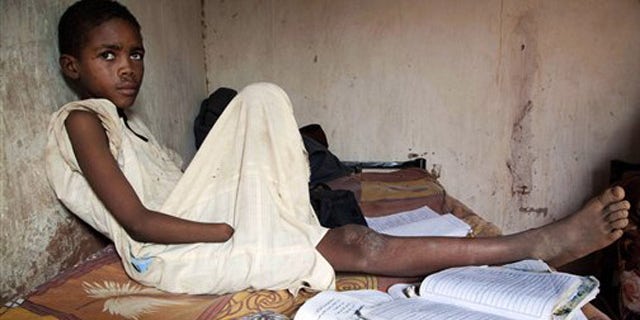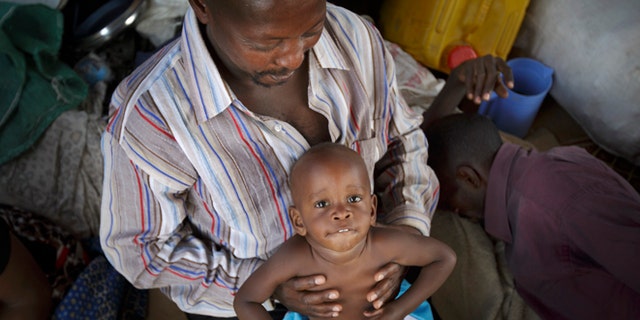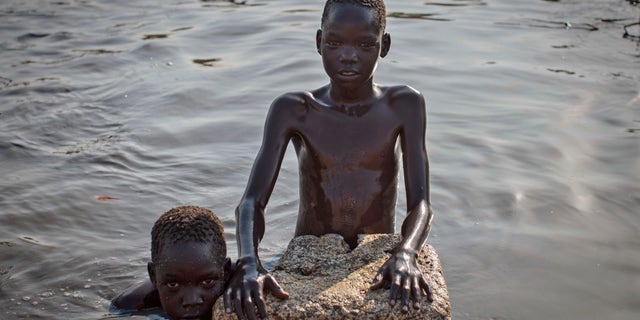
Cell phone radiation expert warns of health dangers on ‘Tucker Carlson Today’
Dr. Devra Davis calls for a full independent evaluation of the science on cell phone usage.
Almost 100 hundred people have died in Fangak, Jonglei State in the northern part of South Sudan from an undiagnosed illness, according to a recent press statement.

In this photo taken Monday, April 2, 2012 and released by the United Nations African Union Mission in Darfur (UNAMID), Abdurrahim Ahmed Mohamed, 12, is seen at the Al Salam camp for displaced persons in El Fasher, Sudan. (AP Photo/UNAMID, Albert Gonzalez Farran)
On November 13, 2021, the South Sudan’s Ministry of Health received a report of several deaths affecting children ages one to 14 years old as well as the elderly with symptoms of high fever, vomiting, fatigue, joint pain, loss of appetite, and chest pain without an unknown cause.
Two days later, a team of health experts deployed to the area, with the initial finding of a high positivity rate for malaria among those tested at private clinics, the statement added.

A displaced Ugandan boy is held by a relative as they wait for an evacuation flight from the United Nations camp. (AP/Ben Curtis)
A rapid response team followed up on December 8, 2021, to further investigate, but could not verify the 89 deaths reported by local authorities. The team, however, confirmed a rise in malaria cases in the area.
The World Health Organization launched an investigation of the outbreak in November, testing patient samples for cholera, which is a typical infectious disease from an infected water supply, but the results were negative, according to ABC News.
“Fangak county is among the most flooded-affected locations in South Sudan in 2021. That has increased disease burden of common endemic diseases such as malaria, acute watery diarrhea among others,” the statement said.

Young displaced boys bathe in a reservoir inside one of the camps for people who have fled the recent violence, in the capital Juba, South Sudan. (AP Photo/Mackenzie Knowles-Coursin)
(AP2014)
This extreme flooding is the worst natural disaster in the past 60 years, causing over 200,000 people to be displaced from their homes, with the humanitarian aid group Médecins Sans Frontières (MSF), or Doctors Without Borders, noting in a statement last month that these floods create a “perfect storm for disease outbreaks.”
“People do not have enough water or options for water storage, and there is no garbage collection, while dead goats and dogs are left rotting in the drainage systems,” the statement added.
“With the conditions further worsened by the influx of new arrivals [at camps], people are at higher risk of outbreaks and waterborne diseases such as acute watery diarrhea, cholera, and malaria.”
Source: Read Full Article



